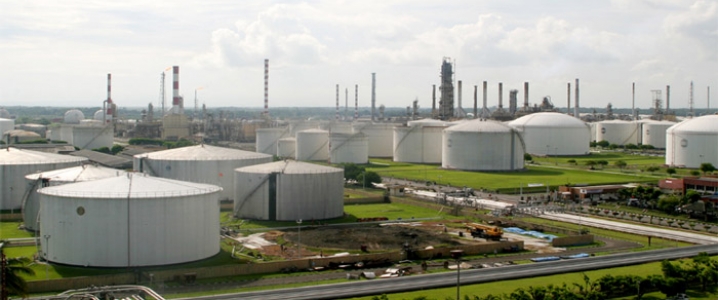At the end of 2016, Indonesia—which had rejoined OPEC just several months before that—refused to take part in the production cut deal and suspended its membership in the organization.
Now Indonesia says that it would be happy to rejoin the cartel if it manages to boost its crude oil production and diminish its imports.
Indonesia is currently a net importer of crude oil, while under OPEC’s statute “any other country with a substantial net export of crude petroleum” and similar interests can join the cartel, pending approval by the members. It’s called the Organization of the Petroleum Exporting Countries, after all.
Indonesia first joined OPEC in 1962, becoming the first Asian member of the organization outside the Middle East. It suspended its membership in 2009, when declining domestic oil production made it a net importer of crude oil. Indonesia then rejoined OPEC in January 2016, aiming to use its membership in the organization to sign bilateral cooperation deals to increase its falling oil production.
But while OPEC and the ten non-OPEC nations led by Russia were forging the production cut deal in November 2016, Indonesia decided that joining the cuts would not be in its interests and suspended its membership at the meeting on which the deal was signed.
Indonesia is now aiming to cut crude oil imports and its crude oil import bill amid deteriorating government finances due to weak local currency. The two pillars of this policy are boosting biofuel use in the transport sector and prioritizing the supply of domestically-produced crude to the local market before considering exports.
“If we can increase our production, we are more than happy to rejoin,” Ir Saleh Abdurrahman, the secretary general of Indonesia’s National Energy Council, told S&P Global Platts on the sidelines of the ADIPEC conference in Abu Dhabi on Monday.
Indonesia’s current domestic crude oil production is around 800,000 bpd, while its imports are roughly double that volume—at 1.5 million bpd-1.6 million bpd, Abdurrahman told Platts. Related: Aramco CEO: Expect IPO In 2021
“I think we are on massive way of introducing the biodiesel and bioethanol to our transport sector,” Abdurrahman told Platts on Monday.
Two months ago, Indonesia introduced mandatory use of 20 percent bio-content (B20) biofuel—mostly palm oil—for use in all diesel machines, including power plants, heavy equipment, and trains locomotives. Indonesian officials have estimated that the mandatory biodiesel content would save the country some US$6 billion in diesel costs annually, Reuters reports.
Indonesia is also studying the possible conversion of two of its old oil refineries into biofuel plants, an Indonesian minister said in October.
Indonesia’s government and Italy’s oil and gas major Eni are studying the possible conversion of two refineries of Indonesian state-held energy firm Pertamina built in the 1930s, Indonesian minister for state-owned enterprises, Rini Soemarno, said, as quoted by Reuters.
In September, Eni and Pertamina signed a Memorandum of Understanding to explore opportunities in Green Refinery, in which the Italian major will lend its expertise in studies for converting and operating bio-refineries.
For Indonesia, converting oil refineries into biofuel plants would fit several strategic objectives—absorbing more of its palm oil production (of which it is the world’s largest producer), cutting expenses on crude oil and thus trying to reduce a swelling current account deficit, and reducing crude oil imports while trying to prop up domestic production. Related: Permian Drillers Prepare To Go Into Overdrive In 2019
Indonesia introduced in September new legislation to prioritize local crude oil production over imported crude oil. The new regulation stipulates that oil and gas operators in Indonesia must first sell their production to Pertamina in Indonesia before considering exports of crude oil.
However, if it wants to reduce dependence on imported crude, Indonesia needs to attract more foreign investments for boosting its domestic production—and despite some recent efforts, it has failed so far.
Pertamina would need US$100 billion to increase oil production if it were to meet domestic oil demand, but 70 percent of this spending is expected to come from external funds and partners, Pertamina’s vice president of corporate business strategic planning, Ernie D Ginting, said in September.
Indonesia has to compete with natural decline and compete for foreign investment to significantly increase its oil production. But if OPEC and Russia institutionalize their cooperation pact for years to come—as widely expected—Indonesia may not be all too happy to be asked to cut production if it joins the cartel again.
By Tsvetana Paraskova for Oilprice.com
More Top Reads From Oilprice.com:
- Oil Rebounds After Biggest Daily Loss In 3 Years
- Natural Gas Prices Soar To 9-Year Highs As Cold Forecast Bites
- The Next Offshore Boom: Is Senegal The New Guyana?


















